ABOUT US
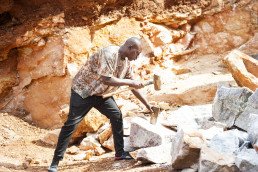
A partnership empowering artisanal and small-scale mining communities across Africa, the Caribbean, and the Pacific since 2015
OUR MISSION
The ACP-EU Development Minerals Programme works to transform artisanal and small-scale mining into a driver of sustainable development. Implemented by UNDP in partnership with OACPS and funded by the European Union, we are creating economic opportunities while promoting environmental stewardship and gender equality in 40+ countries.
The Programme aims to increase competitiveness and incomes of artisanal and small-scale mining and helps grow inclusive and sustainable Development Minerals value chains.
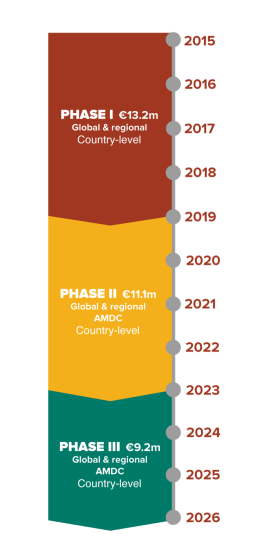
What are Development Minerals?
Development Minerals are minerals and materials that are mined, processed, manufactured and used in industries such as construction, manufacturing, and agriculture. Development Minerals have a great economic significance and impact in the areas where they are mined. They include industrial minerals, construction materials, dimension stones and semi-precious stones.
Development Minerals are also known as common minerals or low-value minerals. Many Development Minerals are non-metallic minerals and minerals used in construction.
Development Minerals are largely mined by artisanal and small-scale mining enterprises and cooperatives (ASMEs). They generate important domestic economic revenues and linkages and have a high impact on livelihoods, economic well-being of local communities and poverty reduction. More than 40 million artisanal and small-scale miners (ASM) worldwide contribute to local economies and meeting the rising demand for minerals used in everything from smartphones and solar panels to the construction of roads and buildings.
WHAT WE DO
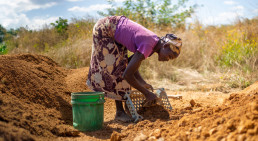
The ACP-EU Development Minerals Programme works to increase competitiveness and incomes of artisanal (informal) and small-scale enterprises in mining and mineral processing (ASMEs) and support inclusive and sustainable Development Minerals value chains across African, Caribbean, and Pacific (ACP) countries. It addresses key challenges by promoting an enabling environment, empowering artisanal miners, helping develop value chains, prioritizing women’s empowerment, and facilitating knowledge generation and sharing. By focusing on capacity building of institutions of ASM and promoting responsible practices, the Programme aims to unlock the potential of Development Minerals to contribute to inclusive and sustainable economic development within these regions. From 2024, the Programme also works to promote low-carbon, circular materials and processes.

Enabling environment
We work to strengthen policies and institutions to support responsible mineral governance, working with governments to develop frameworks and practices that complement regulation with practical implementation support:
-
- Supporting policies and institutions
- Geological and mineral information
- Digitization
Artisanal and small-scale mining
We work to support formalization of artisanal mining cooperatives, and to improve safety, productivity and environmental management by artisanal miners through targeted training and resources:
-
- Supporting organization and formalization of ASM
- Strengthening environmental, social, governance (ESG)
and safety practices in ASM - Empowering women in artisanal mining
Business and value chain development
By connecting miners to markets through skills development and small grants, we're helping transform subsistence operations into sustainable businesses:
-
- Enhancing entrepreneurship and business development
Value addition and low-carbon materials
From production of eco-bricks to using circular materials, we're pioneering green techniques that create jobs while protecting ecosystems:
-
- Building skills for value-addition to Development Minerals
- Innovation in low-carbon and environmentally friendly construction materials
Knowledge creation and sharing
The Programme has facilitated the sharing of best practices and lessons learned:
-
- Research and evidence base
- Knowledge exchange between African, Caribbean and Pacific countries
African Minerals Development Centre (AMDC)
The Programme works to strengthen the institutional capacity of AMDC
HOW WE WORK
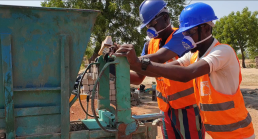
Capacity development:
Training programmes, knowledge exchange platforms, skills development
Evidence for decision making:
Creating a knowledge base, maps, assessments and studies
Supporting policy reforms:
Analyses and participatory consultations on laws and policies and practices
Practical initiatives:
Small grants, innovative pilots and initiatives
PARTNERS
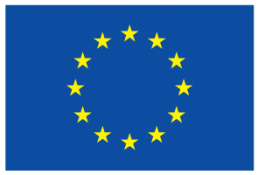
The European Union (EU)
The European Union (EU) is the principal funder of the ACP-EU Development Minerals Programme. The Programme aligns with the European Union’s Global Gateway strategy, launched in 2021, which promotes sustainable and inclusive infrastructure investment with a particular focus on Africa, Latin America, and Central Asia.
Through the Global Gateway, the EU aims to support partner countries in responsibly extracting and adding value to their mineral raw materials, thereby fostering sustainable and resilient minerals value chains in line with the Sustainable Development Goals (SDGs).
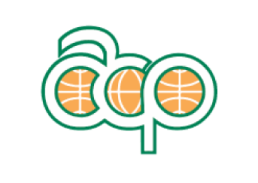
Organisation of African, Caribbean and Pacific States (OACPS)
The ACP-EU Development Minerals Programme serves the member states of the Organisation of African, Caribbean and Pacific States (OACPS), reinforcing its commitment to inclusive and sustainable development across these regions.
The OACPS, formerly known as the ACP Group, was established through the Georgetown Agreement in 1975 and comprises 79 member states from Africa, the Caribbean, and the Pacific. Its core mission is to promote the sustainable development of its members and their gradual integration into the global economy, with the ultimate aim of reducing and eventually eradicating poverty.
The Organisation also plays a central role in coordinating the implementation of the Partnership Agreement with the European Union, fostering unity and solidarity among its members. It advocates for multilateralism, supports peace, security, and democratic governance, and prioritizes the empowerment of youth and women across its member states.
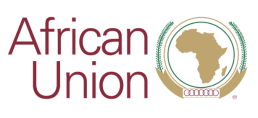
African Union Commission (AUC):
The Programme supports the institutional capacity of the African Minerals Development Centre (AMDC), mandated as the implementing agency of the African Union Commission in the field of minerals.
The African Union Commission is the implementing body of the African Union (AU) – the African continental body consisting of the 55 member states. It was officially launched in 2002 as a successor to the Organisation of African Unity (OAU, 1963-1999).
The ACP-EU Development Minerals Programme partners closely with the African Union (AU) through the African Minerals Development Centre (AMDC), a Specialized Agency of the AU dedicated to implementing the Africa Mining Vision (AMV). Adopted by African Heads of State in 2009, the AMV provides a strategic framework for harnessing Africa’s mineral resources to drive inclusive, sustainable development and structural transformation.
Through this partnership, the ACP-EU Development Minerals Programme supports the institutional capacity of AMDC to strengthen policies, institutional frameworks, and capacity in the management of minerals and integrate minerals into broader mineral governance systems, support formalization and value addition, and align national strategies with continental priorities under the AMV and Agenda 2063.
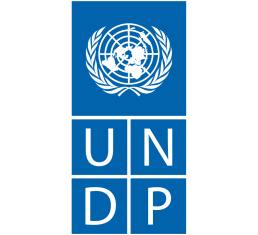
United Nations Development Programme (UNDP)
UNDP is the leading United Nations organization fighting to end the injustice of poverty, inequality, and climate change. Working with our broad network of experts and partners in 170 countries, we help nations to build integrated, lasting solutions for people and planet.
UNDP is the co-funding and implementing partner of the ACP-EU Development Minerals Programme.
Recognizing the significant social, environmental, and economic impacts of extractive industries, UNDP adopted a Strategy for Supporting Sustainable and Equitable Management of the Extractive Industries which guides its efforts to ensure that natural resource wealth contributes to improving lives and advancing sustainable development.
UNDP collaborates with governments, civil society, the private sector, academia, and local communities to promote responsible governance of extractive industries, in line with global best practices and national development priorities.

